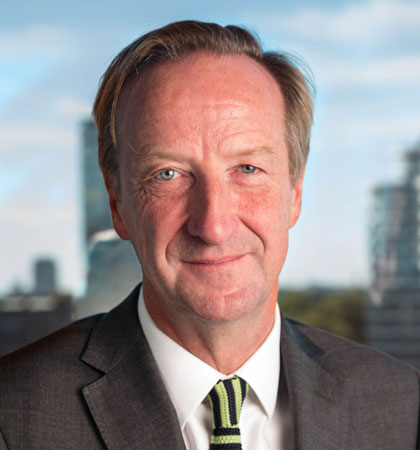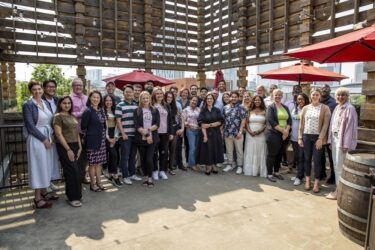MI6 chief Alex Younger speaks in public for the first time in four years to give an update on the British spy agency’s most pressing challenges including hybrid threats, AI, and the need for a new generation of espionage.
“The era of the fourth industrial revolution calls for a fourth generation espionage”
“The era of the fourth industrial revolution calls for a fourth generation espionage: fusing our traditional human skills with accelerated innovation, new partnerships and a mindset that mobilises diversity and empowers the young,” said Younger.
Read More: UK spy agency that violated human rights to launch startup accelerator in Manchester
The fourth industrial revolution is one of technology and information. According to Younger, “The degree of interconnectedness between nations, peoples and systems today, the ubiquitous nature of information, and the exponential pace of technological change, are making the world dramatically more complicated.”
Because technology has allowed humans to connect, interact, and share information almost instantaneously anywhere in the world, this has opened channels where misinformation, blurred lines, and ambiguity reign supreme.
“This complexity has eroded the boundaries we have traditionally relied upon for our security: the boundaries between virtual and real, the domestic and the international, between states and non-state actors and between war and peace. The result is a world of far greater ambiguity,” the MI6 chief said.

Alex Younger
Younger explained that the UK’s adversaries present “hybrid threats” by showing “a keen willingness to exploit ambiguity in an opportunistic way, taking advantage of blurred lines to probe our institutions and defences in ways that fall short of traditional warfare.”
These hybrid threats include the cyber attacks, misinformation, and disguised use of military force combined with political obfuscation and plausible deniability.
“We are in the early stages of a fourth industrial revolution that will further blur the lines between the physical, the digital and biological realms,” he continued.
“We will always need to understand the motivations, intentions and aspirations of people in other countries. Even in an era of artificial intelligence you need human intelligence, in fact it will become even more important in a more complex world.”
The intelligence community is now evolving to meet the threats of the hybrid age, and this evolution has three steps.
- Forging partnerships
- Mastering covert action in the digital age
- Ensuring that technology is one the side of MI6 and not its adversaries
Forging partnerships involves domestic and international organizations working together to detect, deter and counter hybrid attacks and other threats to the United Kingdom. The domestic partnerships include those with MI5 and GCHQ, and the international ones include the United States, Canada, Australia, New Zealand, and European nations as well.
Read More: MI5, CIA used Samsung Smart TVs to secretly listen-in on conversations: WikiLeaks
For mastering covert action in the digital age, Younger said, “In a world of hybrid threats it is not enough to know what your adversary is doing. You must be able to take steps to change their behaviour. This is primarily driven by the threat from terrorism – the ultimate manifestation of the eroded boundaries of the 21st century. SIS [MI6] is the arm of government that has the ability to go overseas to the source of terrorist threats, and to disrupt them lawfully through our partnerships.”
Concerning maintaining a technological edge, the British spy chief announced, “Cyber is now our fastest-growing directorate. We are shifting our focus to the nexus between humans and technology. And for the first time, through the National Security Strategic Investment Fund, we are pursuing a completely different type of partnership with the tech-innovation community, giving the private and academic community the role we need and they deserve.”












